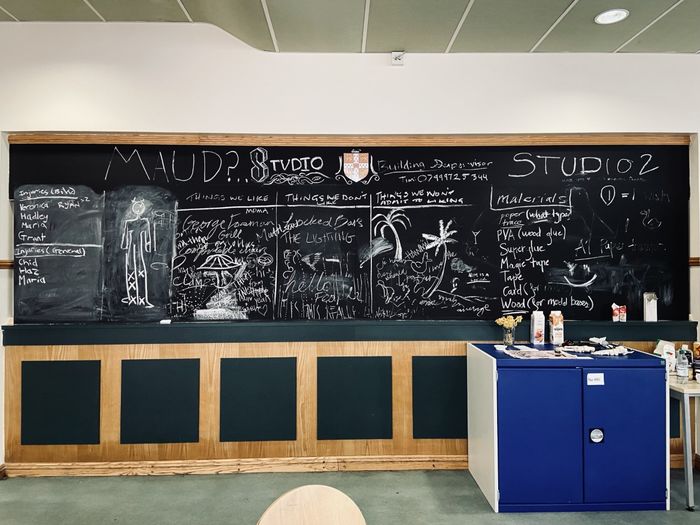Why Cambridge needs a new concert hall
Issuing a call to action to the University and the city, Delilah Knight lays out the case for a larger performance venue

The city of Cambridge has long been associated with excellence in music. This is true of both the university and the city itself: the university awarded the world’s first Bachelor of Music degree, and the city continues to host globally renowned music events such as the Cambridge Folk Festival and the Cambridge Music Festival. Yet, in a town famous for its musical history and that serves as a regional cultural centre, the lack of a large-capacity concert hall is a conspicuous absence.
“A larger concert hall[...]would allow for more equitable access to music performance”
Debates over the need for a larger concert hall in Cambridge have been taking place for the better part of two centuries, starting as far back as Peck and Stephens’ concert hall design in the 1850s, and culminating in later plans such as that made in 1976 by Cambridge City Architect Gordon Logie. These debates have culminated in some results — Junction, for example, was founded as a result of the work of a pressure group formed in 1985 that lobbied for leisure venues for city residents following the closure of the vast majority of these venues in the 1970s and 80s. More recently, the need for a new concert hall was identified in a 2012 report noting that “despite a distinguished music tradition, there is no purpose-built, large-scale venue provision within the Cambridge sub-region”. Ultimately, however, the Cambridge City 2018 Local Plan dismissed the concept of a new concert hall by arguing that ‘no evidence of need …. has been demonstrated.’
Such a conclusion is far from justified. Firstly, Cambridge’s current population growth was 13% between 2001 and 2011— and is projected to have grown even further between then and the 2021 census. This has cemented Cambridge’s status as a regional centre outside of the University and has caused the needs of the city to outgrow its current music venues. The Corn Hall is the greatest example of this; it remains the city’s largest capacity venue at 1400. And yet, it was converted into a music venue designed to cater to the population of Cambridge in the 1980s, which stood at around three quarters of the size of the city’s current population.
“The case for a larger concert hall is, in my eyes, undeniable and irrefutable”
Not only is a larger concert hall necessary to cater to the expansion of Cambridge’s population, but it would also mutually benefit both the city and the University in the delivery of the creative arts. A new concert hall would assist the City Council in meeting the aims outlined in the 2021 Local Plan’s First Conversations, which aims to provide “a range of accessible services that reflect current future needs and supports communities’ health, social and cultural well-being”, while also providing the University’s new Centre for Music Performance with a larger venue than West Road Concert Hall to use.
Most importantly, a larger concert hall available for use by both the University and the city would allow for more equitable access to music performance of all genres within Cambridge. While music within the University may be “thriving”, the city of Cambridge is made up of more than just its University; a space allowing shared access to music for both the university and the city could help to address the growing inequality within Cambridge, and go some way towards healing the town-gown divide that has been entrenched in the structure of this city for a number of years. There is historical precedent for such a venture, too, with Sir William Ivor Jennings QC, former Vice Chancellor of the University, pledging that the University would cover 50% of funding of a new large hall for both the town and university to use back in 1962.
This article is a call to action addressed to both the university and to City Council members both old and newly elected. The case for a larger concert hall is, in my eyes, undeniable and irrefutable, enhancing the lives of both those within the university and outside of it and continuing a legacy of music within Cambridge which has historically been exceptional. I can sum up my sentiments on the matter in one simple phrase; in the words of Sir William Ivor Jennings “such a hall would, I believe, make a great contribution to the life of Cambridge.”
 News / News in Brief: SU says sayonara to sabbs (again) and Cunk comes to Cambridge5 January 2025
News / News in Brief: SU says sayonara to sabbs (again) and Cunk comes to Cambridge5 January 2025 Lifestyle / Blind Date: ‘He gave me a good strategy for stealing from formals’5 January 2025
Lifestyle / Blind Date: ‘He gave me a good strategy for stealing from formals’5 January 2025 Features / Does Cambridge have a caffeine problem?4 January 2025
Features / Does Cambridge have a caffeine problem?4 January 2025 Fashion / The decline of Depop and the rise of Vinted5 January 2025
Fashion / The decline of Depop and the rise of Vinted5 January 2025 Science / Stay cold to treat a cold?5 January 2025
Science / Stay cold to treat a cold?5 January 2025




